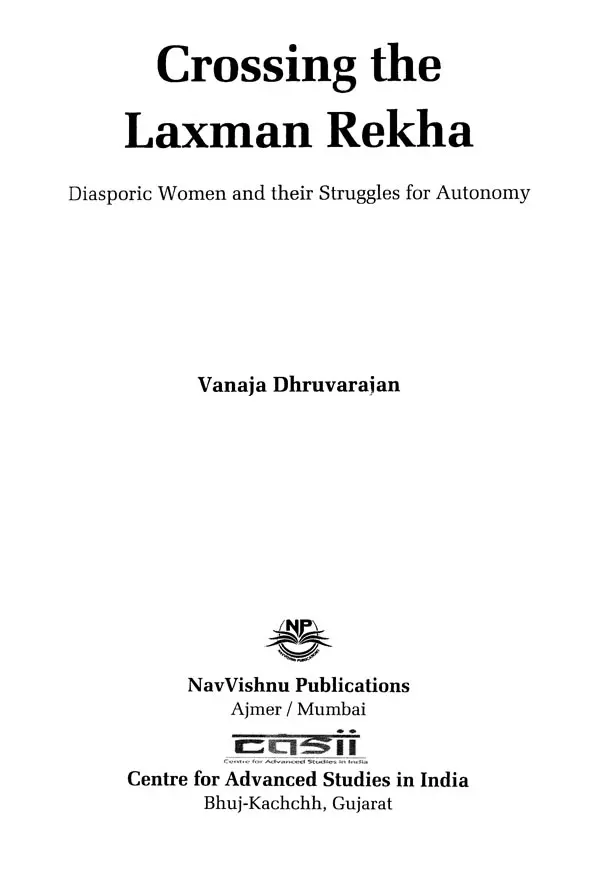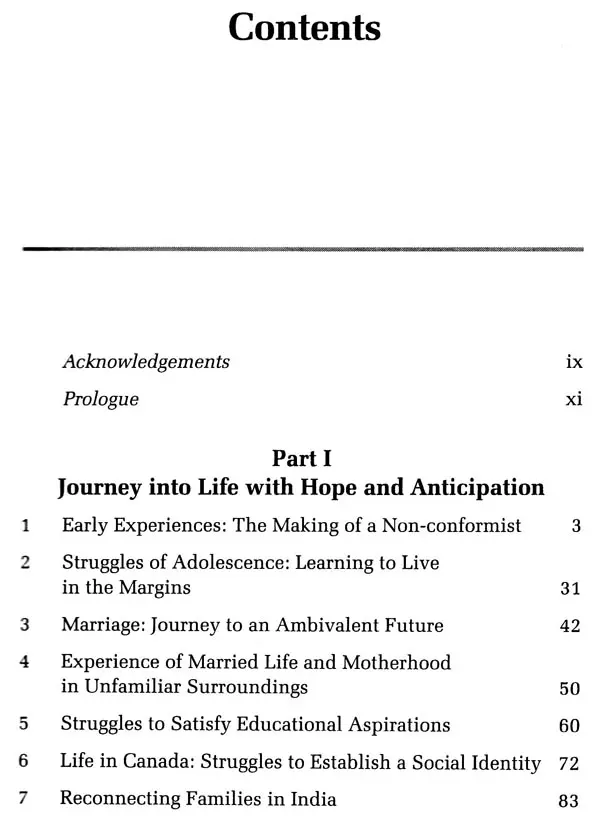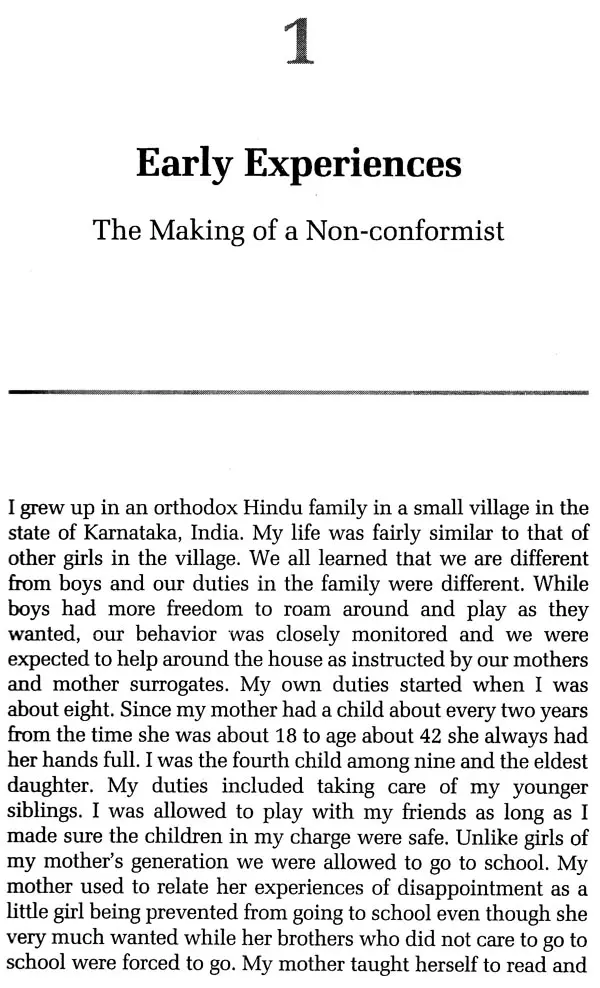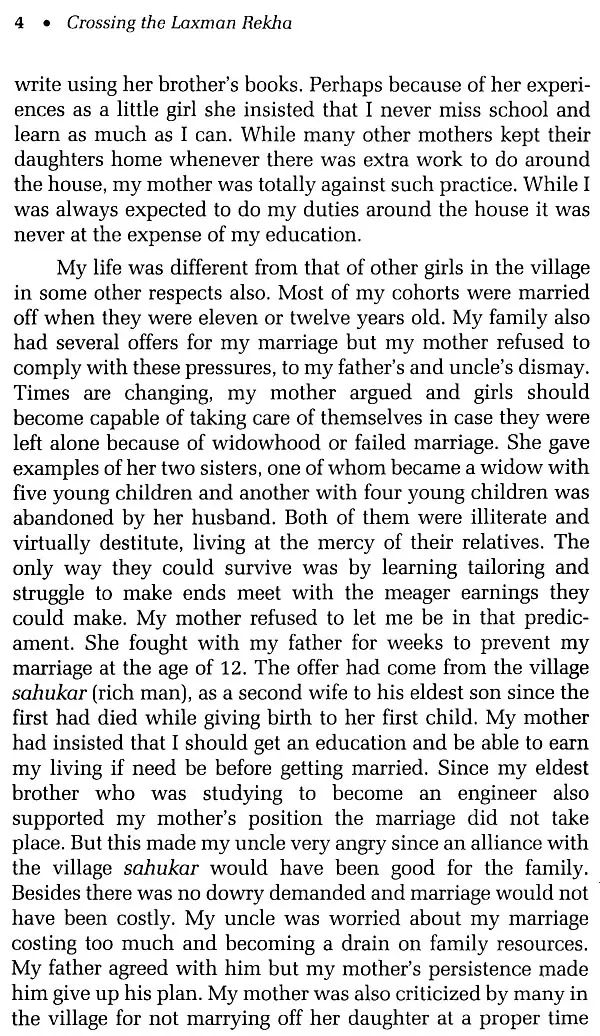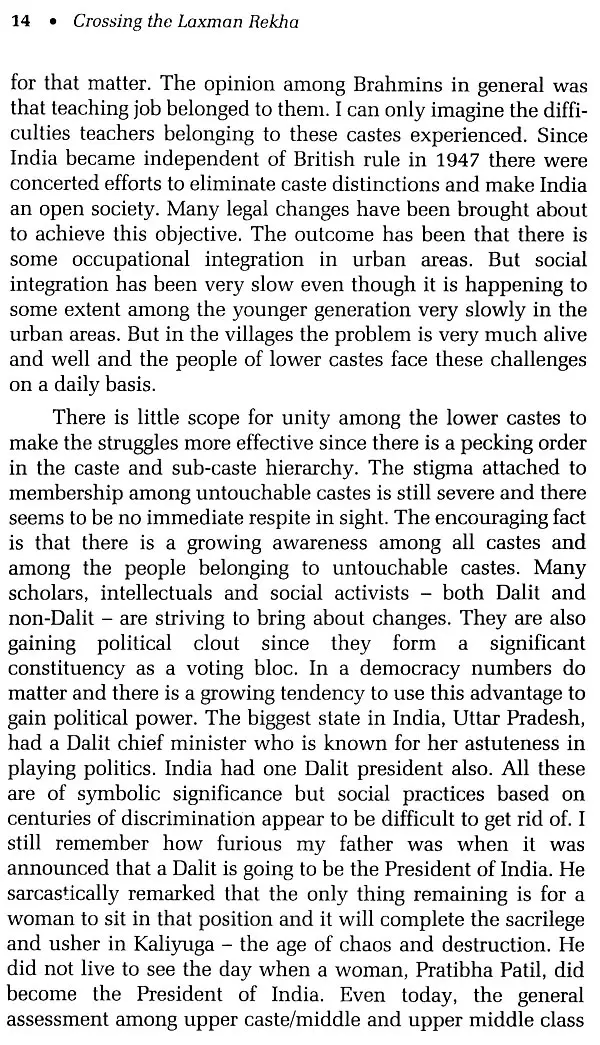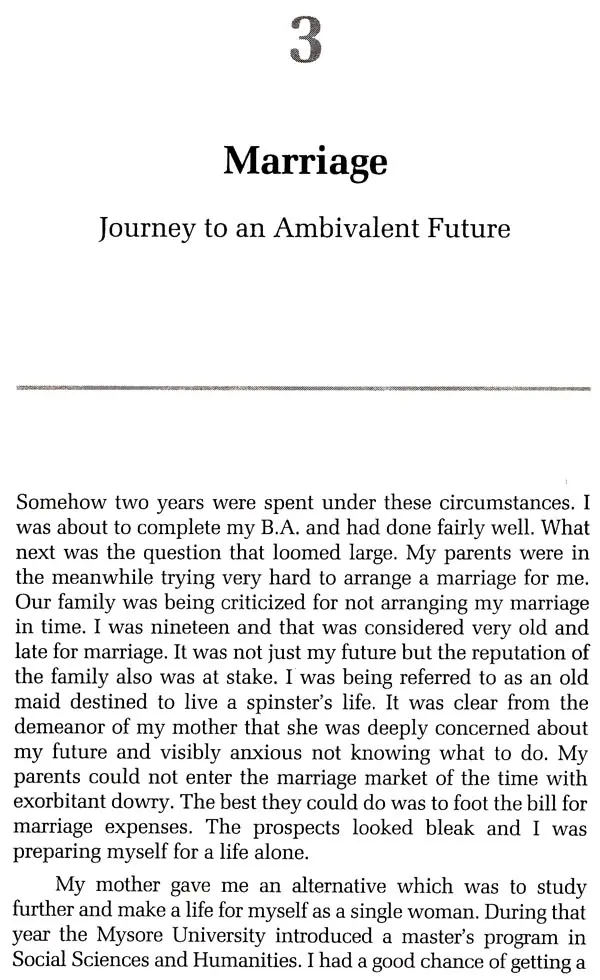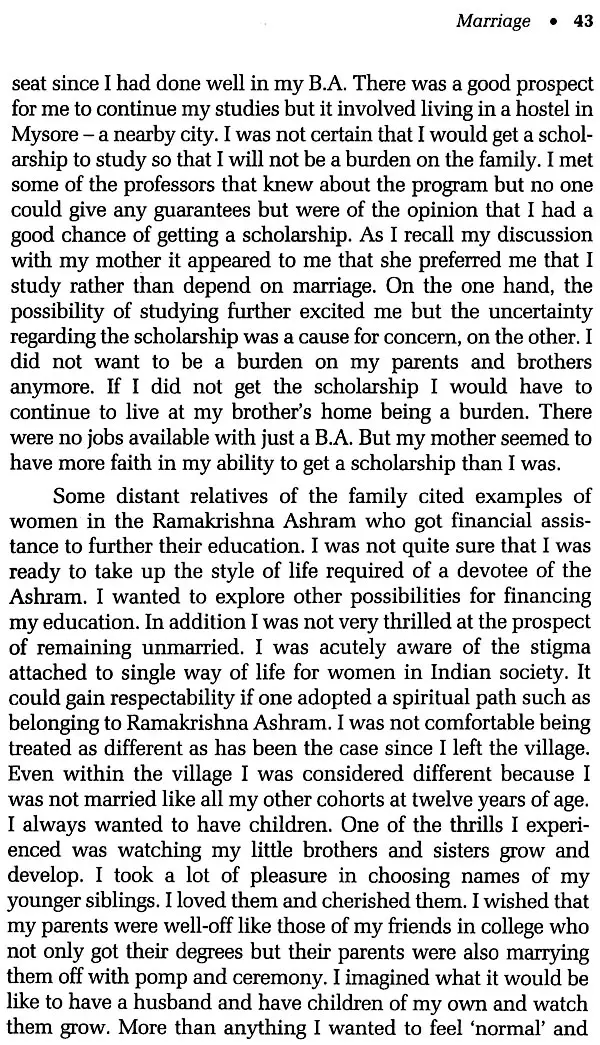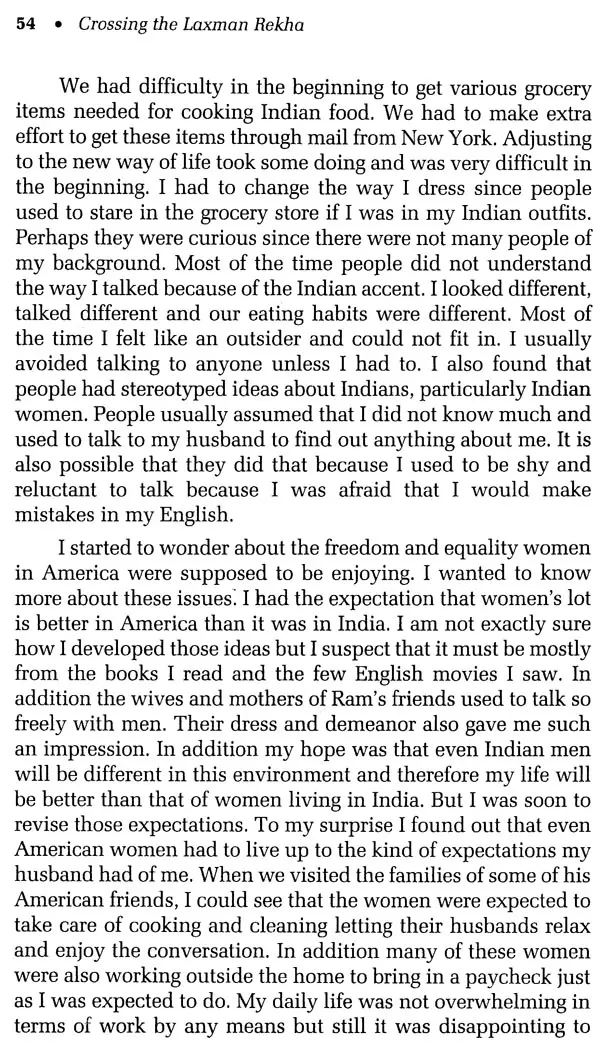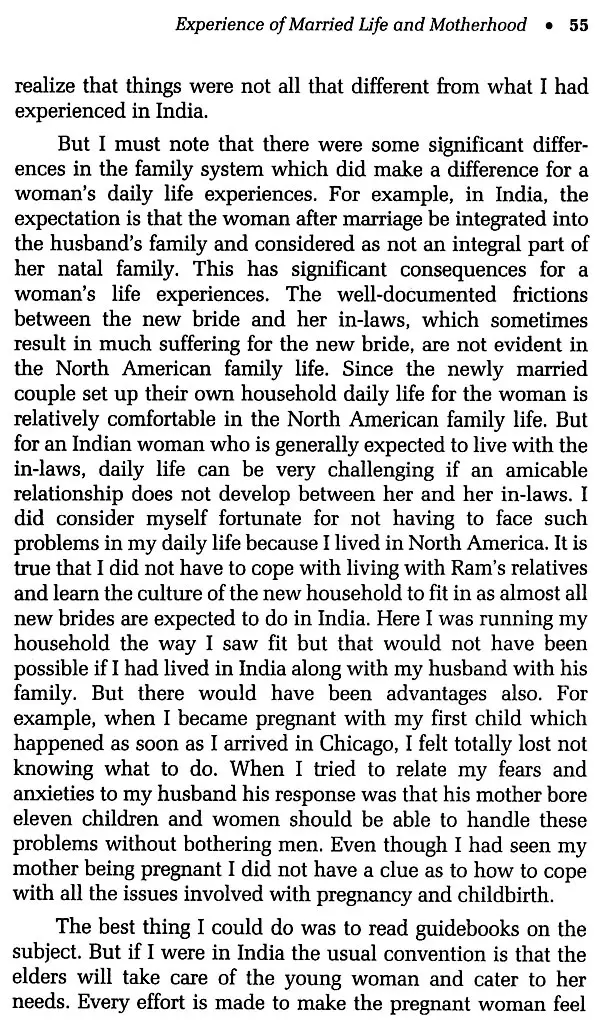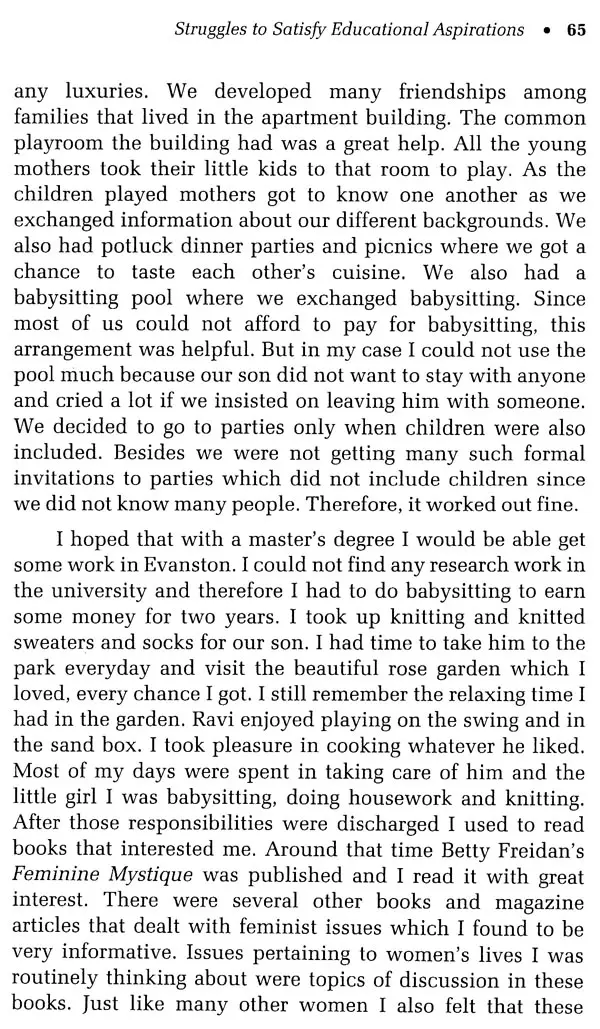
Crossing the Laxman Rekha: Diasporic Women and their Struggles for Autonomy
Book Specification
| Item Code: | UBD534 |
| Author: | Vanaja Dhruvarajan |
| Publisher: | Centre for Advanced Studies in India |
| Language: | English |
| Edition: | 2015 |
| ISBN: | 9788193022559 |
| Pages: | 246 |
| Cover: | HARDCOVER |
| Other Details | 8.50 X 5.50 inch |
| Weight | 470 gm |
Book Description
The Laxman Rekha, which sets limits on women's behavior, has become a metaphor for proper womanly conduct within Hindu religious context. Historically, there has been a general consensus regarding the necessity of setting such limits. But where exactly the limits should be is not clearly specified since it is subject to change according to time, place and context. This is where the notion of negotiating boundaries becomes important. As India has changed over time, the policies and practices pertaining to gender relations have changed also. But the need to specify boundaries is reiterated over and over again.
Women have always struggled to stretch these boundaries to enjoy more autonomy. This book is about a woman's struggles to transcend constraints placed on her behavior. It also draws parallels of struggles of other women to the author's struggles both in India and Canada. It also deal with both the pains and pleasures of living at a time when tremendous changes were taking place both in India and Canada which were exciting but difficult at the same time. The extent of their success in negotiations and the price they have to pay in case they flaunt the limits varies In each case.
The author recounts several efforts to question systems of inequalities both in India. and Canada by enlightened leadership and bring about changes in the legal framework.. But the centuries old belief systems that define the way we live are resilient. She shows how inequalities have become systemic and are routinely reproduced in our daily mundane activities and behavioral patterns. In this effort she draws upon her lived experiences of more than sixty years in this book.
In June 2004 I moved out of Calgary where I had lived most of my life in the same house, to relocate in Toronto because I found it very difficult to continue living there after my failed marriage. In a mechanical fashion I sold the house in Calgary, bought a townhouse in Toronto, disposed of things I did not want/need, and packed the rest, and moved. I was feeling so vulnerable that I did not want to discuss with anyone how I was feeling. In that state of mind during a conversation with my son and his fiancée I declared that my life is a tragedy. Both of them were taken aback.
Watching the expressions on their faces I knew that I should not have said that. How can I say that my life is a tragedy when I have two wonderful sons and their beautiful life mates whom I adore along with four precious grandchildren whom I treasure and cherish? They all have given meaning to my life. My career in university teaching/research of more than forty years by all accounts is exemplary. I have published three books and more than fifteen articles. I have served as president of several associations. I have been a plenary speaker at various academic conferences. I served on several national and university boards and on boards of professional associations in positions of significant importance and decision-making. But there was no doubt in my mind at that time that my life is a tragedy.
**Contents and Sample Pages**
